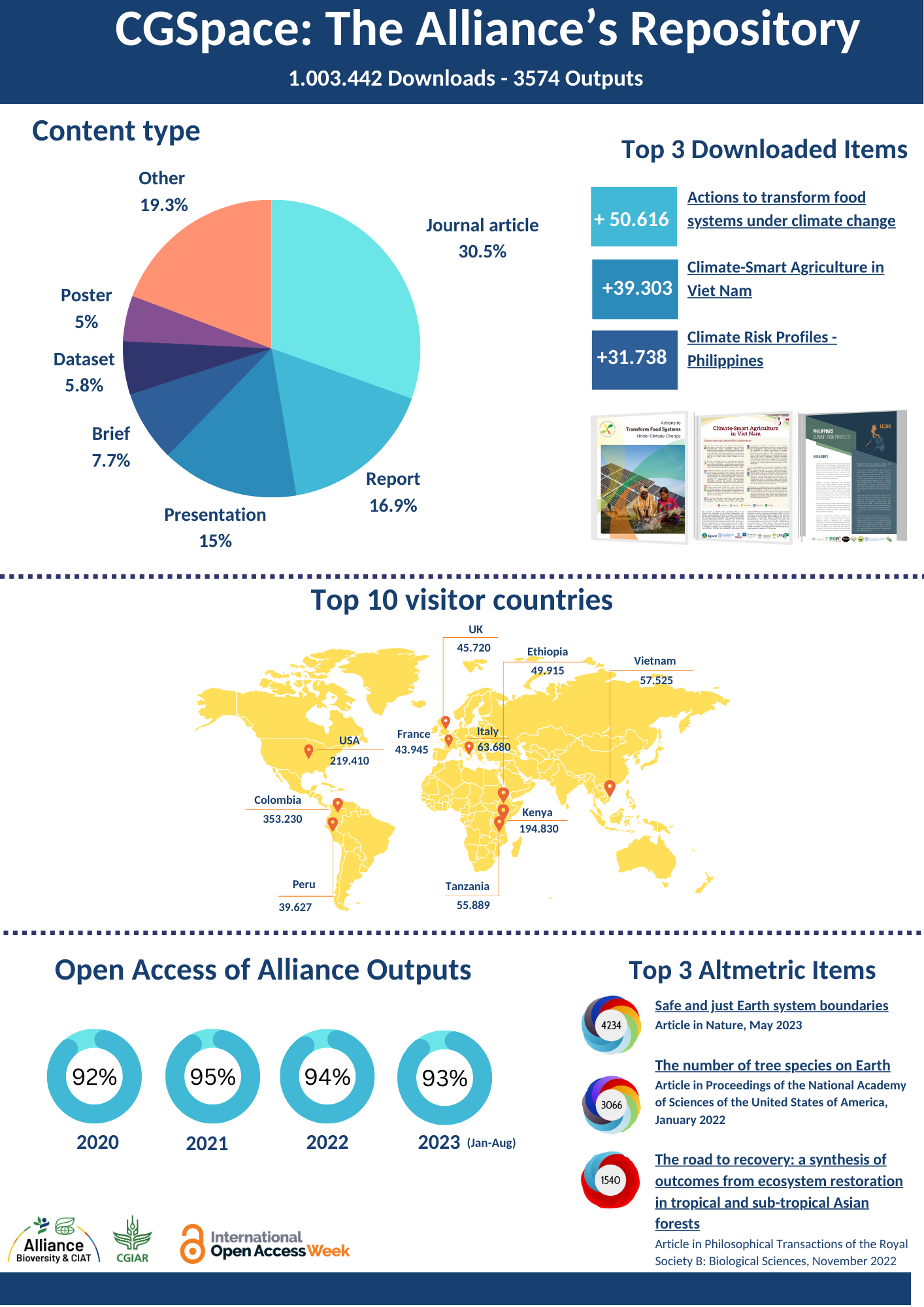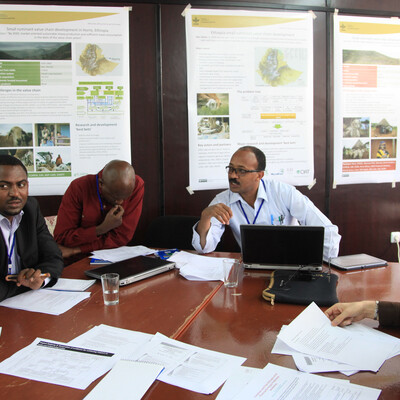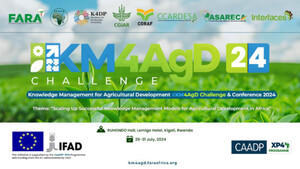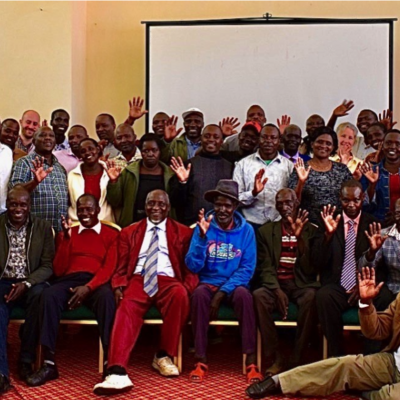

Open access to CGIAR research – next steps with our CGSpace community
For open access week in 2022, we celebrated a major milestone: 100,000 knowledge products published through our joint CGSpace repository of research outputs. In the past 12 months, CGSpace has become well–established and is now our collaborative platform to publish, make available and disseminate the collective work of hundreds of scientists working together on 35+ agrifood research initiatives and platforms.
Alongside these efforts, in 2023, working as a community of practitioners, the team behind CGSpace is putting the next version of CGSpace in place.
The CGSpace collaboration …
A joint effort by a community of research organizations, CGSpace is a channel for publishing and dissemination, it supports progress reporting, it facilitates content analysis looking for trends, and it gives knowledge seekers access to latest as well as legacy research spanning 50 years.
CGSpace also enables and reinforces our institutions’ commitment to open access, it follows open standards, its metadata and content is open for others to re-use, and all the code and conventions are documented on GitHub.
The CGSpace collaboration and similar efforts across CGIAR have brought us a long way in the past 15 years.
Where information on articles and other knowledge products of CGIAR research centers was spread across multiple library catalogues, publication databases and websites (with generally very low accessibility), today the great majority of our scientific reports and articles can be identified and are accessible through CGSpace.
Indeed colleagues at the Alliance of Bioversity and CIAT report that the percentage of their knowledge products that are open access is regularly above 90% (see image below).

Next steps…
Systematically adding outputs from all CGIAR initiatives and platforms and the centers involved in them, has been a major recent milestone in the evolution of our repository.
Not only has CGSpace become the index to all the outputs supported through CGIAR’s Trust Fund, it also brought together and reinforced collaboration among a group of knowledge, data and information management practitioners located in all CGIAR centers. We especially appreciate strong co-leadership of our efforts by colleagues at the International Food Policy Research Institute – the signs are positive for them to become a full content partner in CGSpace.
With this community, we are able to advance progress on our key priorities:
- We are preparing to upgrade our DSpace platform to the next version (7). This is significantly different in its back end than previous versions and it offers faster performance, streamlined content management and external integration, and a friendlier interface. Please take a look for yourself.
- For people using the platform to find information, we have improved our explorer tool that provides visualisations and reports for different types of outputs and their attributes.
- We actively contributed to updating of the metadata and vocabularies that we use to describe CGIAR research outputs. This brings more consistency and quality to our content and helps it ‘travel’ and be published across the Internet and beyond.
- Finally, we have been exploring and testing how the many thousands of items in CGSpace can most effectively and very soon be contributed to AGRIS – the global information access and sharing system managed by the Food and Agriculture Organization of the United Nations.
We also seek to collaborate beyond our own community. Later this year, we will hold a technical workshop with the Forum for Agricultural Research in Africa and its regional partners to explore how they could set up a DSpace repository, inspired, partly, by CGSpace. We also linked up with the DSpace user community in Nairobi and we are proud that our technical lead Alan Orth is an active contributor to the core DSpace community that underpins the sustainability of the platform.
You may also like

ILRI News
Who owns our knowledge? ILRI’s commitment to open access in livestock research for development
ILRI News
Bridging knowledge gaps in agro-meteorological services for smallholder farmers in northern Nigeria

ILRI News
Beyond smartphones: How citizen volunteers are supporting the drylands livestock market intelligence platform KAZNET in Kenya and Ethiopia
Related Publications

Lessons and early outcomes: Report from SAPLING Theory of Change Reflection workshop held in Kampala, Uganda
- Businge, Martha
- Oba, Peter
- Ahumuza, Ronnie
- Wairagala, Pamela
- Kasoro, Isaac
- Guma, Clive
- Mukasa, Christopher
- Namatovu, Jane
- Kugonza, Donald R.
- Ouma, Emily A.

Knowledge management for projects: A case study of the Capacitating One Health in Eastern and Southern Africa (COHESA) project
- Wairagala, Pamela














